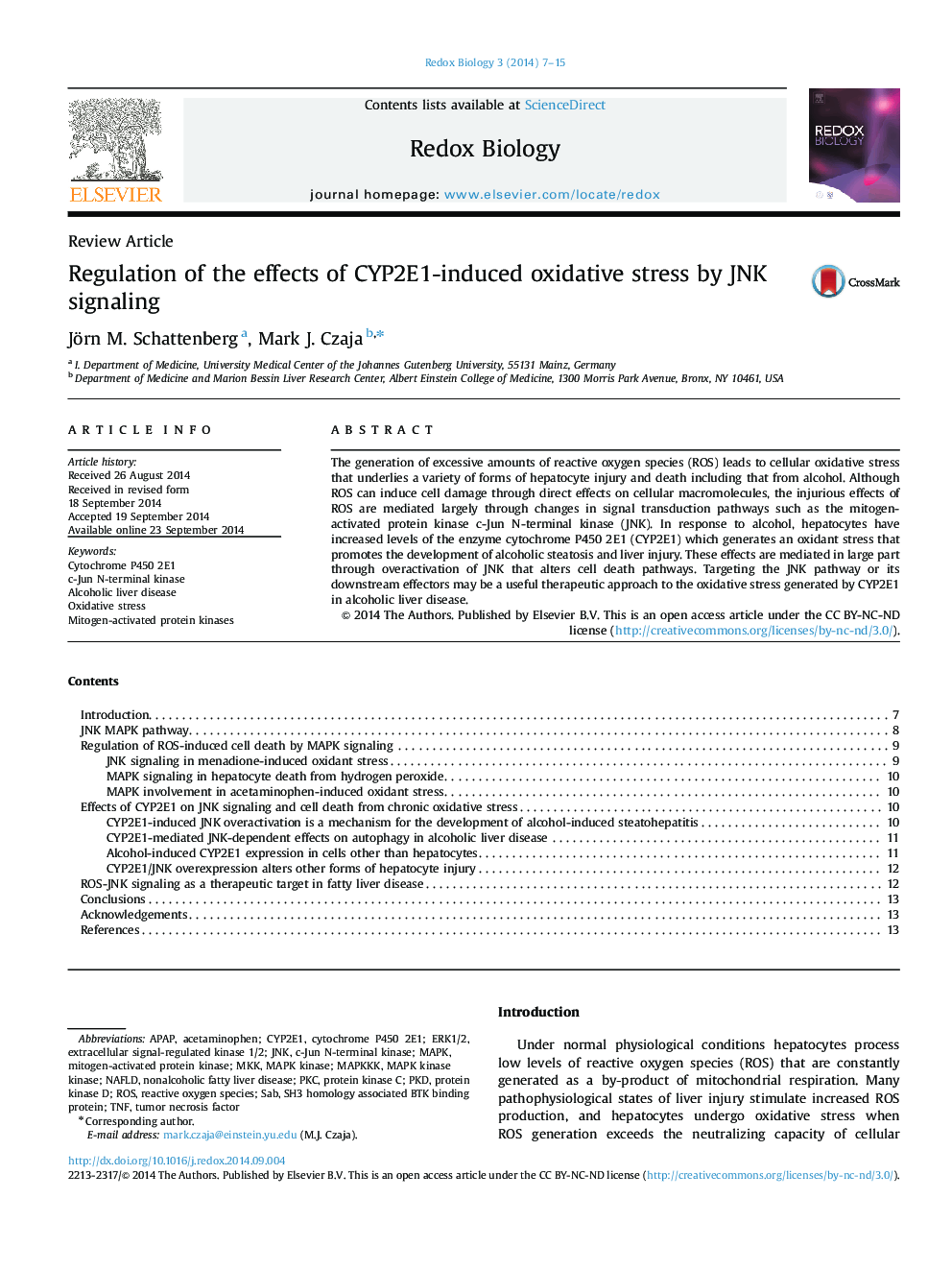| Article ID | Journal | Published Year | Pages | File Type |
|---|---|---|---|---|
| 1923108 | Redox Biology | 2014 | 9 Pages |
•c-Jun N-terminal kinase (JNK) activation regulates metabolic signaling and cell death pathways in hepatocytes.•Cytochrome P450 2E1 (CYP2E1) overexpression in fatty liver disease increases levels of reactive oxygen species (ROS) triggering oxidative stress.•CYP2E1-generated ROS cause JNK overactivation which is a mechanism for the development of alcoholic fatty liver disease.•The CYP2E1-ROS-JNK injury cascade is a therapeutic target in alcoholic liver disease.
The generation of excessive amounts of reactive oxygen species (ROS) leads to cellular oxidative stress that underlies a variety of forms of hepatocyte injury and death including that from alcohol. Although ROS can induce cell damage through direct effects on cellular macromolecules, the injurious effects of ROS are mediated largely through changes in signal transduction pathways such as the mitogen-activated protein kinase c-Jun N-terminal kinase (JNK). In response to alcohol, hepatocytes have increased levels of the enzyme cytochrome P450 2E1 (CYP2E1) which generates an oxidant stress that promotes the development of alcoholic steatosis and liver injury. These effects are mediated in large part through overactivation of JNK that alters cell death pathways. Targeting the JNK pathway or its downstream effectors may be a useful therapeutic approach to the oxidative stress generated by CYP2E1 in alcoholic liver disease.
Graphical abstractFigure optionsDownload full-size imageDownload as PowerPoint slide
